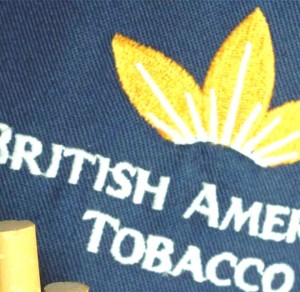British American gets reprieve from Ugandan duty

As a common market, BATU argues that URA should not be imposing an excise duty on their products made in Kenya.
January 29— Cigarette maker, British American Tobacco (BATU) Uganda Limited, has put to the test the practical workings of the East African Community Common Market after winning a legal reprieve not to pay excise duty to Uganda Revenue Authority (URA) on their products manufactured in neighbouring Kenya since its one market.
The ruling was delivered by Principal Judge, Lady Justice Monica Mugenyi.
Where a dispute has been referred to the East African Court of Justice (EACJ), the Partner States are enjoined to refrain from any action which might be detrimental to the resolution of or might aggravate the dispute further, a Partner State or the Council ‘must take’, without delay, the measures required to implement a judgment of the Court.
Last week the EACJ First Instance Division granted an interim injunction to BATU, restraining and prohibiting the Uganda government and URA from collecting excise duty due to discriminatory rates, pending hearing and determination of the case.
According to a statement from the EAC Secretariat in Arusha, the Court also took the view that the justice of the matter dictates that the Respondent would suffer less injury from being temporarily prevented from exercising its right to collect the extra excise duty billed to the Applicant if the interim orders sought in the present Application were granted, than the injury the Applicant stands to suffer as the consequence of paying the additional duty.
BATU is rooting its grievance in the fundamentals of a common market which involves the free movement of goods, labour and capital across borders. Last year, BATU filed a case before the Court challenging the legality Uganda’s excise duty (Amendment) Act No. 11 of July 2017. The company argued that the Act goes against the Treaty, the Customs Union and the Common Market Protocols for setting up the EAC. BATU insist goods from the East African Community be given equal treatment.
BATU claim in 2014, Uganda enacted the Excise Duty Act No. 11 of 2014. This among other things, made provision for an excise duty on cigarettes that uniformly applied to all such goods originating from any of the EAC Partner States.
However in 2017, this Act was amended to create a distinction between locally manufactured and imported goods. Under the amended provisions, BATU’s goods were re-classified by URA to be goods from a foreign country on account of their originating from Kenya, and subjected to the applicable excise duty. Previously BATU’s goods were initially treated as locally manufactured goods.

 US African foundation joins Stanbic Holdings to award $400,000 in grants
US African foundation joins Stanbic Holdings to award $400,000 in grants
 AfDB puts up nearly $700m for Burundi-Tanzania SGR link
AfDB puts up nearly $700m for Burundi-Tanzania SGR link
 Bank of Uganda keeps base rate at 9.5% to support surge in GDP growth
Bank of Uganda keeps base rate at 9.5% to support surge in GDP growth
 Africans must resist being bulldozed in energy transition timetable debate
Africans must resist being bulldozed in energy transition timetable debate
 Standard Bank Group appoints new Chief Executive for Uganda Holdings
Standard Bank Group appoints new Chief Executive for Uganda Holdings
 TradeMark Africa introduces new App to limit EAC trade barriers
TradeMark Africa introduces new App to limit EAC trade barriers
